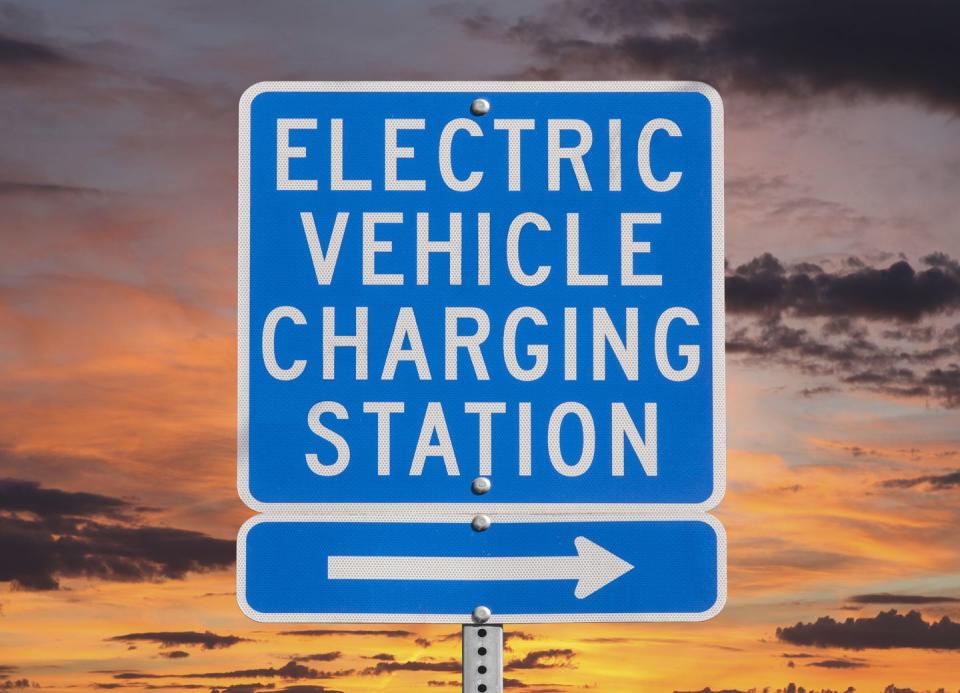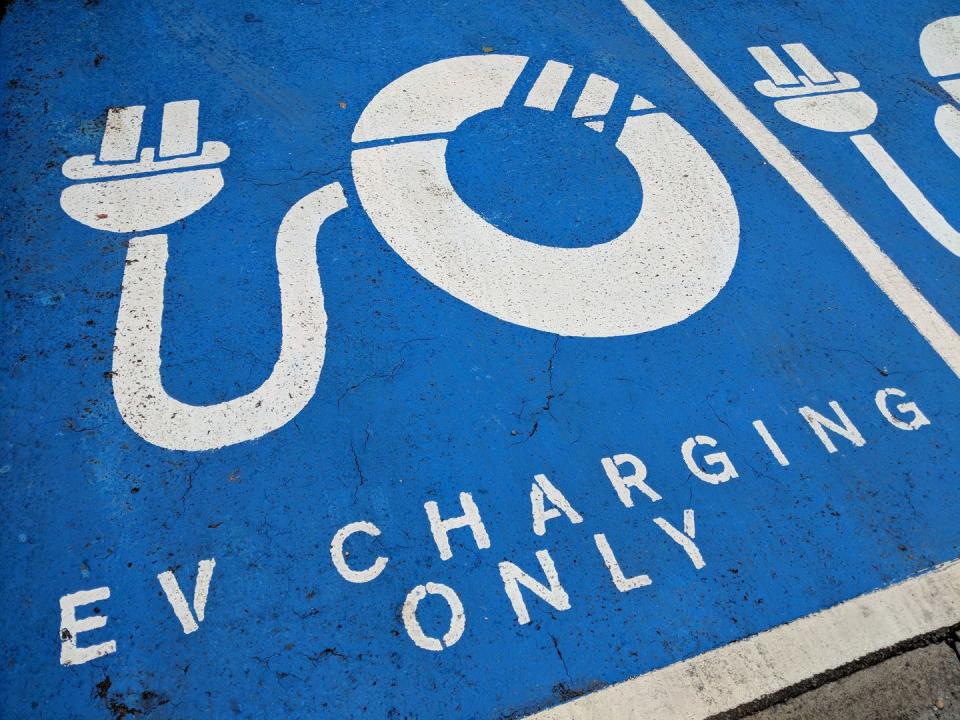Should Your Next Car Be an EV?

It looks like we're reaching a tipping point for electric-vehicle sales. Early adopters purchased more than a quarter-million EVs in the first quarter of 2023, according to Kelly Blue Book—though exact numbers are difficult to pin down in part owing to a lack of precise Tesla sales figures. EVs have improved to the point that they're now practical for a large swath of U.S. buyers, and thousands of new public charging stations are being added across the U.S. every month. If that has you wondering whether this is the right year for you to buy your first EV, you're in the right place. Peruse this list of pros and cons to see if now's the time for you to make the leap to driving on battery power.
Pro: Greater Choice
There are now 43 EV models for sale on the U.S. market. The selection is wider than ever before and new entrants seem like they're coming every month. You now have a choice of EV power in multiple body styles: SUVs, sedans, hatchbacks, and pickup trucks. Most come from established mainstream and luxury brands, with a handful of startup carmakers trying to shoulder in.
Pro: Longer Range
Until EV charging stations are as numerous as gas stations, range anxiety will be a part of EV ownership. We think that an EPA-rated range of 200-plus miles is the minimum for U.S. driving conditions, and virtually all EVs offer at least that much. Some shoppers will want a rating of 300 miles or more, and that's available in multiple models. A few EVs exceed a rated range of 400 miles per charge. As always, real-world range falls at higher speeds or in cold weather. Check out our vehicle reviews to see how the many EVs we've tested perform on our real-world 75-mph highway fuel-economy test.

Pro: Savings Every Mile
The dollar savings that accrue from driving on electricity can be considerable. For instance, it costs $14 to drive 100 miles in a 25-mpg SUV with gasoline at $3.50 a gallon. At the average U.S. price of $0.165 per kilowatt-hour for home electricity, covering those same 100 miles in an EV that gets 3 mi/kWh (101 MPGe) costs just under $5.50. If the owner recharged the EV entirely at public fast-charging stations at an average of $0.35/kWh, the cost of 100 miles would still be only $11.50.
Pro: Home Charging
Four out of five households with enough income to buy a new vehicle (at an average price of $48,000) have dedicated off-street parking—meaning they can very likely recharge an EV overnight at home in their garage. Some asterisks apply: For instance, to recharge a large EV pickup-truck battery fully overnight requires a Level 2 240-volt home charging station, which needs to be installed by an electrician. But EV owners quickly become accustomed to plugging their car in overnight just as they plug in their phones—and discover they like not visiting gas stations.
Pro: Performance Comes With
If you're the type of driver who loves to push down hard on the right pedal, you'll like driving an EV. Thanks to the nature of electric motors—with their plentiful low-rpm torque and instant throttle response—even lower-powered electric vehicles are lively. Many mainstream EVs are muscle-car quick, and there are a host of mega-power performance EVs that will squash you into the seatback and blur your vision with their ability to pull off brutal launches.

Pro: EVs Are Practical
Owning an electric car may seem daunting if you're happy with your current gas-powered vehicle and haven't investigated the latest EVs. The best way to understand how an EV fits into a driver's life is to talk to someone who already owns one: a friend, relative, neighbor, or coworker. They'll almost invariably say that after a week or two, they stopped thinking of it as an electric vehicle and just started treating it like any other vehicle, albeit a quieter one. Trailer towing remains an EV shortcoming due to the big hurt it puts on range but otherwise, EVs can satisfy the needs of millions of U.S. drivers and their families.
Pro: Tax Incentives for Leasing
Until recently, many EVs qualified for a federal tax credit of up to $7500. The Inflation Reduction Act passed last August changed those rules. The bill slashed the number of EVs eligible for the tax credit to the handful built in the U.S. that are equipped with battery minerals from approved countries and cells and battery packs assembled in North America. However, the restrictions do not apply to EVs that are leased rather than bought outright, regardless of where the cars or their batteries are manufactured. That's because the lease is deemed a commercial transaction between the dealer and the leasing company. Customers are following the money, and EV leasing has soared this year. Beware, though: dealers aren't required to pass along the tax credit to the lessee, and some don't. So check the numbers to ensure you're getting the full value of the credit before you sign the lease deal.
Con: Reduced Incentives for EV Buyers
As mentioned above, the IRA has put shoppers who want to buy an EV in a tough financial spot, as only a small number of electrics qualify for the federal tax credit if they are purchased. If you're set on buying a model that's still eligible for the tax incentive, you'll be choosing from a much smaller set of vehicles. Unfortunately, there's only one workaround that'll net you the tax credit on every EV on the market: you'll need to lease instead of buy.
Con: Short Supply
Starting in 2020, the auto industry saw its supply chain turned upside down by the global COVID-19 pandemic. Some EV models are still in short supply—and dealers often mark them up, just as they do with fast-selling gasoline models. It's not as big a problem now as it was 18 months ago, but you still can't necessarily walk into a showroom, choose an EV from an array of models parked out back, and expect to pay sticker price or less. Industry analysts suggest that's likely to continue into 2024.

Con: More New Models Coming
One reason to hold off buying now is that, in the next several years, U.S shoppers will have dozens more EVs to choose from than they do today. Every automaker has revealed plans for new EV models, so if there's not an EV in the vehicle type you want, wait two or three years and there very well may be. One example: half-a-dozen all-new electric three-row family SUVs have been announced for sale by 2025. But then again, there will always be more new EVs on the horizon tempting you to wait just a little longer.
Con: Higher Sticker Prices
Running an EV saves you considerable money on every mile (see above), but most have higher sticker prices than comparable gasoline vehicles. Analysts expect that EVs will eventually reach price parity with gas cars as electric models are built in higher volumes and competition in the EV space heats up—but that situation is not imminent.
Con: Charging is Tough for Some
Home charging, usually done overnight, is the secret sauce for EVs. It's easy and convenient, and means you don't have to visit public charging stations when driving locally. But for the many Americans living in multiple-unit dwellings, who park on the street or in open lots, home charging is not possible. Charging at work is an option for an increasing number of commuters, as are public charging stations within walking distance of home. But we don't yet have all the answers to the conundrum of providing charging options for apartment dwellers who want to own an EV.
You Might Also Like

 Yahoo Autos
Yahoo Autos 